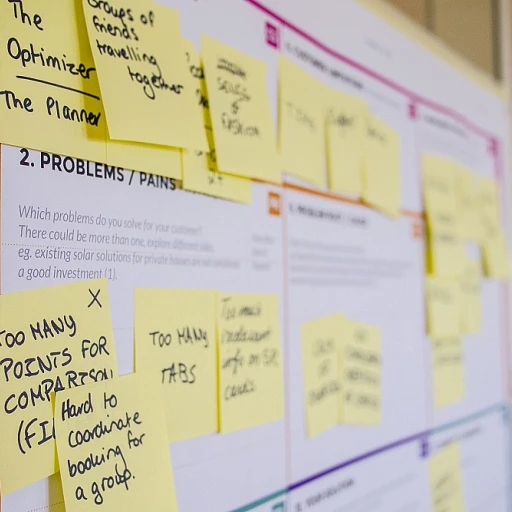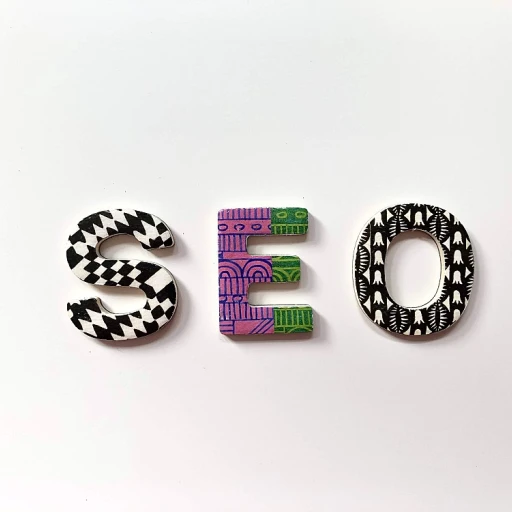
Harnessing AI for Smarter Keyword Contextualization
Enhancing Keyword Semantics with AI
In the ever-evolving realm of search engine optimization (SEO), artificial intelligence (AI) emerges as a pivotal force, transforming how keywords are understood and utilized in rankings. Unlike traditional keyword matching, AI-driven algorithms focus on keyword contextualization, discerning the nuanced relationship between words, searcher intent, and context. This intricate understanding aids in aligning content with user queries, bolstering search relevance, and ultimately elevating website visibility.
For those seeking to dominate SERPs, embracing AI tools can be a game-changer. These smart technologies go beyond mere keyword density metrics, delving into user behavior patterns, semantic analysis, and predictive trends to identify keywords heaped with intent and relevance - potent weapons in the modern SEO arsenal.
AI's Mastery of Search Intent
AI's substantial impact on SEO is evident in its ability to dissect search intent. By analyzing vast arrays of data, including search history, location, and device type, AI anticipates the user's needs, presenting them with content that resonates with their current quest for information. This approach ensures that SEO strategies are not just about getting any traffic to your site, but the right traffic.
Fostering an environment where content meets the perceptive demands of the user, AI serves as a cornerstone for crafting valuable experiences, which, in turn, signals to search engines that the content is worthy of high rankings. In the broader scope of SEO, this user-first philosophy is rapidly becoming the core tenet for successful optimization.
One might ponder the ways in which AI can specifically enhance the user search journey. By spotlighting the interplay between content relevance and user satisfaction, the role of AI in content relevance becomes clear. As search algorithms grow smarter, the emphasis on providing useful, actionable content has never been more essential.
Integrating Structured Data for AI Comprehension
Structured data is another cog in the AI-driven SEO machine. By labeling content with precise metadata, website owners can communicate directly with search engines, providing them with explicit information about the elements on their pages. This structured approach means search algorithms are no longer left to guess the meaning behind a piece of content; they're provided with a clear roadmap of what each page contains.
Furthermore, structured data plays a significant role in enabling visual search and voice search optimization, two areas where AI significantly impacts user interaction with search engines. With smart devices becoming increasingly prevalent, SEO strategies must adapt to accommodate these growing modalities.
As AI continues to refine the landscape of SEO, the interaction between technology and human behavior offers boundless opportunities. The optimization of keywords now requires a profoundly analytical, detail-oriented approach that moves in concert with technological advancements and ethical guidelines. In this dance with AI, understanding the subtleties involved in keyword contextualization can elevate the efficacy of SEO strategies, making them resilient to the winds of change.
Revolutionizing User Experience with AI-Enhanced Content Relevance
Revolutionizing User Experience with AI-Enhanced Content Relevance
The crux of modern SEO rests not just on understanding what people are searching for but how and why they're searching for it. This is where AI enters the scene, brilliantly evolving the user experience through semantic search optimization. Unlike traditional keyword-based searches, semantic search dives deep into the context and intent behind user queries, thanks to natural language processing and machine learning technologies.
Fostering Enhanced Content Personalization
Artificial intelligence now empowers content creators to tailor their message to a level of personalization previously unattainable. AI's analytical capability can dissect user data, discerning patterns and preferences, which in turn informs how content should be structured. By analyzing user behavior, site interaction, and engagement, AI-driven SEO tools can optimize content to resonate more effectively with the target audience's search intent, ultimately boosting search engine rankings.
Surpassing Traditional Search Metrics with Behavioral Understanding
Search engine algorithms are constantly being refined to prioritize websites that provide a superior user experience. The integration of AI doesn't just stop at finding the right keywords; it's about understanding the subtleties behind those keywords - the human element. This advanced understanding elevates user experience by predicting and serving the most appropriate content. It bridges the gap between simply attracting visitors and converting them by ensuring that content meets their specific needs and questions.
With the deployment of AI, websites transition from being information providers to experience architects. This subtle yet powerful shift does not only affect how content is discovered but also how it's experienced. Such technology can determine if your visitor prefers videos over text, infographics over PDFs, or a specific tone and style of writing. Every engagement becomes an opportunity to learn and refine your SEO strategy for heightened relevance.
Utilizing Smart Data for Hyper-Relevant Content Creation
In the relentless pursuit of relevance, AI-powered analytics are critical. They not only provide insights into what users are looking for but also into the context and nuances of their searches. By leveraging this comprehensive data, content creators can produce hyper-relevant content that serves the specific needs and desires of their target audience, thereby enhancing the chance of a higher SEO ranking. This alignment between user intent and content relevance is paramount in the age of semantic search optimization.
To illustrate, consider the case of an e-commerce platform leveraging AI to analyze customer reviews and feedback. The insights generated can be used to craft detailed product descriptions that answer potential buyers' questions before they even ask them, creating a seamless and intuitive user journey.
Ultimately, the amalgamation of artificial intelligence into our SEO strategies is not just reshaping how we approach keywords and content creation; it's revolutionizing the very fabric of user experience on the web. As such, SEO specialists are now tasked with a deeper level of analysis, moving beyond surface-level metrics to forge an empathetic connection with their audience - an endeavor that AI stands ready to assist with.
AI-Powered Analytics: Precision-Driven SEO Decision Making
Employing Predictive Analytics for Strategic SEO Insights
The advent of AI-powered analytics is transforming the Search Engine Optimization (SEO) landscape. By enabling precision-driven decision-making, these advanced technologies help to demystify the complexity of search algorithms and user behavior. AI tools are particularly adept at sifting through enormous datasets, revealing patterns and trends that human analysts might overlook.
For instance, AI-driven analytics can project search volume trends, allowing SEO strategists to anticipate changes in user interest. Moreover, machine learning algorithms compare historical data with current performance metrics to predict future outcomes. This not only streamlines resources but also provides a competitive edge in the ever-evolving digital marketplace.
Numerical data sourced from these analyses often leads to robust strategies with increased ROI (Return on Investment). For example, a report by BrightEdge indicated that brands that integrate AI into their online strategies see an uplift in their SEO efforts by as much as 28%.
Optimizing for Search Intent with AI Algorithms
Understanding and optimizing for search intent has never been more straightforward, thanks to AI. Traditional keyword research tools might give you the 'what'—which keywords are trending—but AI-driven tools provide the 'why' and the 'how' by analyzing search intent. They delve into the searcher's journey, examining patterns from initial inquiry to conversion.
By leveraging semantic search optimization, AI technologies adapt content to the nuances of user intent, leading to higher relevance scores and, consequently, better page rankings. In essence, optimizing for search intent translates to a more tailored and effective approach that aligns closely with the context of user queries, which is a major ranking factor for search algorithms like Google's.
Mitigating SEO Risks with AI-Driven Forecasting
The uncertainty in SEO can be a significant risk for businesses. Here, AI serves as a crystal ball, enabling SEO experts to foresee potential drawbacks or benefits of various SEO strategies. By simulating different scenarios, AI provides a foresight that helps in mitigating risks associated with SEO investments.
Adopting AI for forecasting can include projecting the impact of SERP (Search Engine Results Page) changes or anticipating the effects of algorithm updates. The predictive capabilities of AI analytics tools can alert businesses to these changes well in advance, providing ample time to adapt strategies and maintain search rankings.
Delving deeper into this subject, Lean SEO offers an illuminating perspective on how AI is reshaping the SEO job market, emphasizing the growing need for machine learning expertise within the industry.
Enhancing Competitive Analysis with Machine Learning
Competitive analysis in SEO is crucial; it helps businesses understand where they stand in relation to their competitors. AI elevates this process by assessing competitors' strategies, identifying gaps in the market, and suggesting actionable steps to gain a competitive advantage.
Moreover, AI-enabled tools can monitor a competitor’s SEO activity in real-time. Insights garnered from this analysis can guide businesses to make timely and informed decisions that can lead to improved ranking performance and visibility.
In closing, the marriage of AI and analytics is indisputably revolutionizing the way we approach SEO. It's crucial for modern SEO professionals to keep abreast of these developments, ensuring they harness the power of AI to forge SEO strategies that are not only potent and precise but also futuristic in their orientation.
Future-Proofing SEO: Anticipating AI Evolution and Ethical Considerations
Navigating the Evolutionary Tide of AI in SEO
As the digital landscape evolves, artificial intelligence (AI) is undisputedly becoming the cornerstone of next-generation search engine optimization (SEO). AI's machine learning algorithms and natural language processing abilities have equipped SEO professionals with tools to not only analyze data with incredible precision but also forecast trends. By embracing the dynamic nature of AI, marketers and SEO strategists can ensure their methods remain effective in the ever-changing search ecosystem.
Embracing Ethical AI Practices in SEO
With the power of AI comes great responsibility. Ensuring that AI is used ethically in SEO is paramount to maintaining trust with users and search engines alike. Algorithmic biases must be critically examined and addressed, with transparency in AI practices being encouraged. Legal and moral guidelines are beginning to take shape, guiding SEO specialists towards ethical AI use that enhances user experience without compromising personal integrity.
Staying Ahead: Continuous Learning and AI Adaptability
The future of SEO is intrinsically linked to the advancements in AI. Search professionals must become adept at continuous learning and adaptation. This entails staying informed about AI developments and understanding how these can impact search algorithms, user behavior, and content relevancy. By doing so, SEO strategies can be adapted proactively, integrating emerging technologies such as voice search optimization and AI-driven content generation tools.
Ultimately, the key to successful SEO in the era of AI is not just to adapt to the technology of today but to anticipate the innovations of tomorrow. By combining in-depth AI knowledge with a forward-thinking mindset, search engine optimizers can pave the way for a future where AI and human creativity coexist to create an optimized, user-focused online world.













